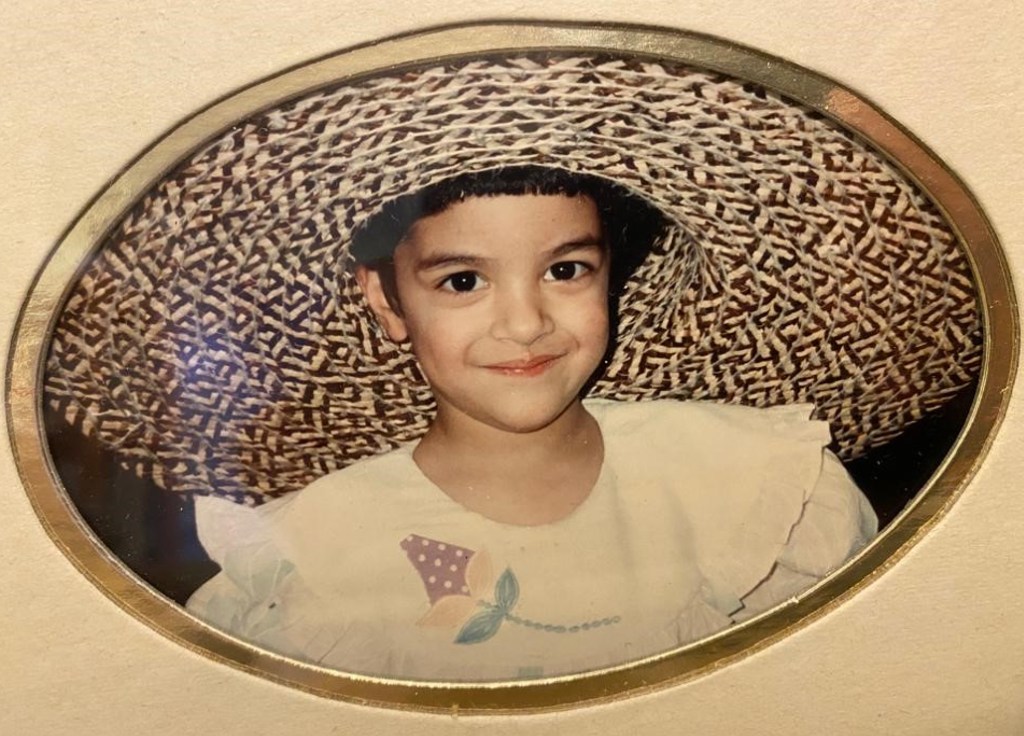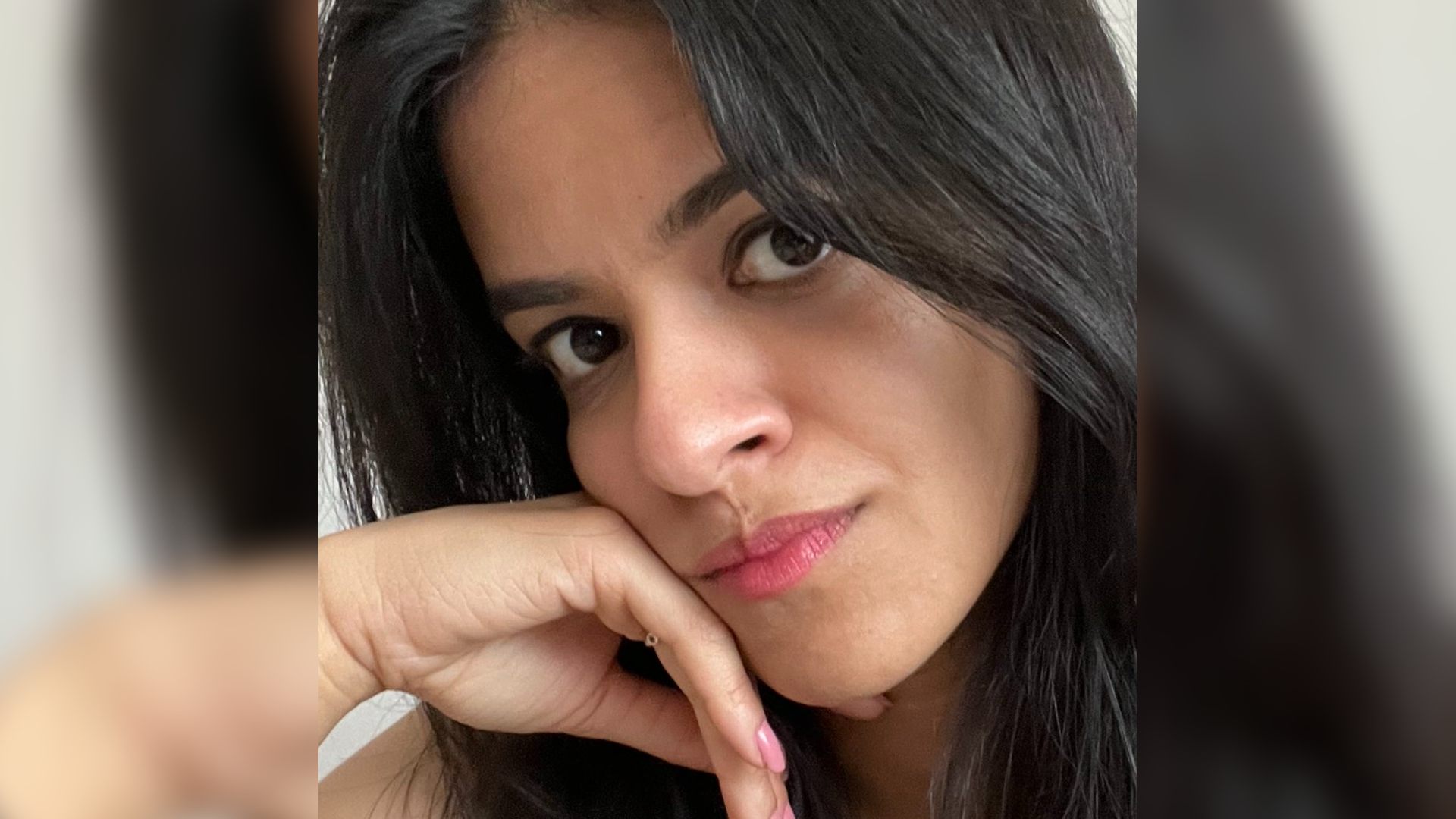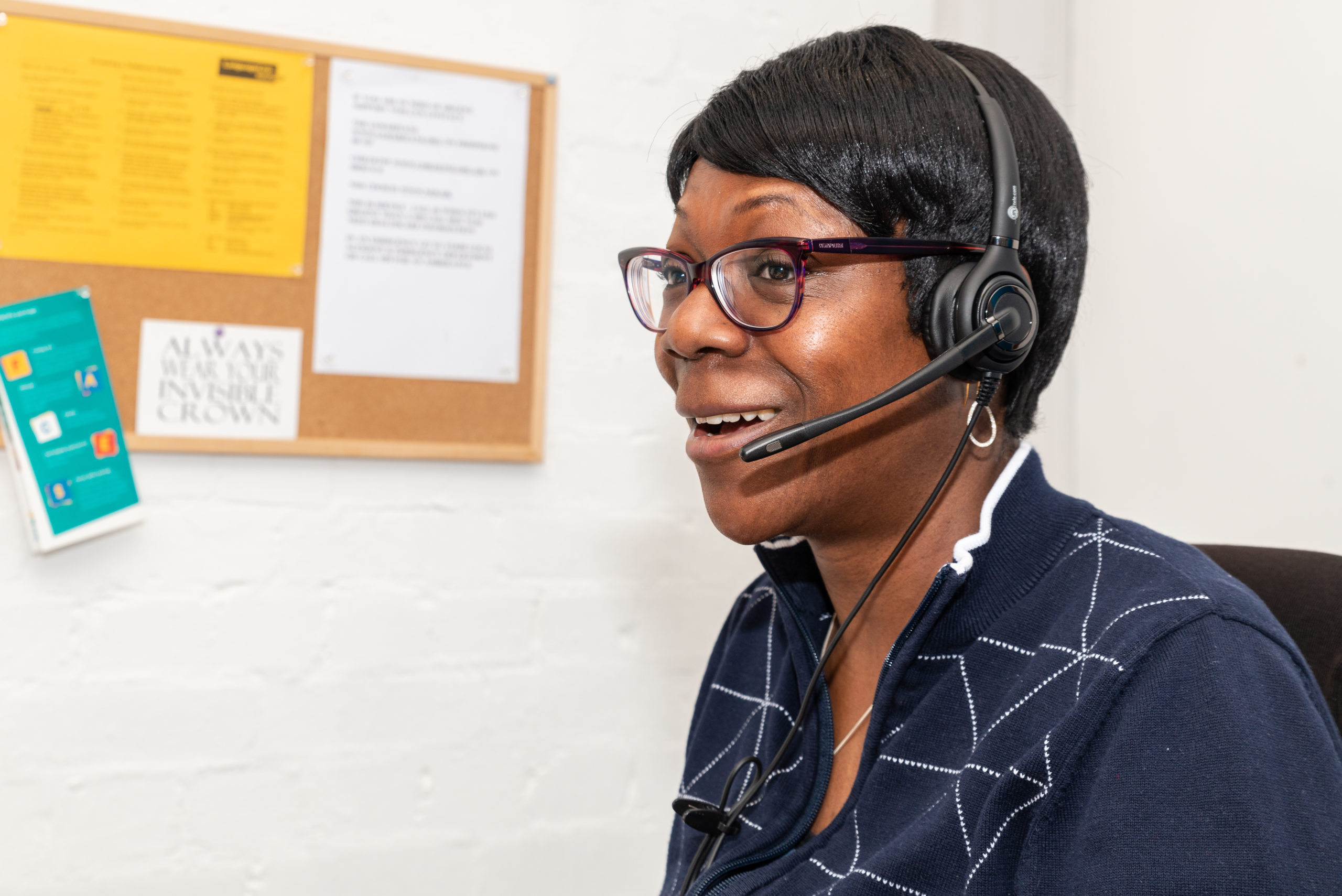I’m Sudha and I have a small scar on my upper lip, a keloid scar of sorts, from a tubing accident when I was in an incubator after having been born early. Many people confuse my scar for a cleft lip, but it’s actually a wound that didn’t heal properly. I have sensitive skin and am prone to scarring from deep cuts.
Growing up, I didn’t really have anyone who looked like me. My parents provided me with a safe and loving environment, and for that I’m grateful because it really helped me through some difficult times. However, the media was slightly less forgiving, filled with people with flawless, scarless, skin. It made me believe I was flawed – that there was something wrong with me for having a scar on my upper lip.

Sudha as a child
I became aware of what it was like to be different at 13 – my teenage years hit me hard. I have a distinct memory of being in class and suddenly becoming aware of everyone staring at me. It wasn’t a stare filled with curiosity or kindness, it was something else, something more heated and laced with negativity. I remember wanting to disappear and be small, insignificant almost. This feeling was further exacerbated in difficulties with friends.
I changed schools because I couldn’t handle my year group’s reaction to my scar. Only when I started afresh did I find my friends and truly flourish. I am now surrounded by an amazing support system who unconditionally love and accept me as I am.
However, I spent the ages of 13 to 26 trying to be small and unseen. I tried to ignore my visible difference but because I didn’t accept myself, people’s stares had a negative impact on me (even when I pretended not to notice). I don’t think I realised how not accepting my visible difference was impacting me.
It was only through counselling that I learnt to give my scar a voice, to acknowledge the pain and sadness I carried and to learn to view people’s interactions with me in a different light.
When you have no one to look up to, to validate your differences, you start to think the problem is you – not society and its beauty standards. This not only impacted my self-worth negatively but also caused me to develop anxiety.
Walking into crowded rooms or meeting new people was a chore. I always felt like I was being judged for my appearance, for my scar. I remember one incident from a few years ago, where I sat opposite someone who spent the entire time touching and poking at her face, at the exact location my scar is. It triggered something deep inside me (and although soul crushing at the time) was the catalyst for great change.
Having known about Changing Faces for several years and being unable to deal with all the stares I was receiving, I decided to reach out to them for support and speak to a counsellor. Initially a part of me feared talking about my visible difference – to acknowledge how it affected me – but a bigger part of me was desperate to be rid of the pain I was feeling, of looking different. I’d become exhausted by my thought process and wanted to learn to accept myself.
It was only through counselling that I learnt to give my scar a voice, to acknowledge the pain and sadness I carried and to learn to view people’s interactions with me in a different light: people’s behaviour is not always malicious, and they don’t always realise what they’re doing. People’s reactions are less about me and more about them. Suddenly, being outside and meeting new people became easier. This kick-started long-term counselling for my visible difference.
Overall, it’s been a beautiful inward journey of acceptance – scar and all.
Studying towards a Master’s degree at London School of Economics and Political Science (LSE) also played a big role in my healing process. This was because I had to face a deep-rooted fear of meeting new people. The friends privy to my social anxiety supported me greatly in my early days at LSE. However, it gradually became easier to meet new people and be in crowds. I really owe Changing Faces (and in many ways, my Master’s at LSE) a big debt of gratitude for helping me to embrace myself. In learning how to be surrounded by a cacophony of students, eyes all focused on me, I faced my fears and accepted that often people are staring from a place of curiosity. It’s not personal. As a result, I took my power back.
While I still have moments when I flinch and struggle, they are less often and I am better able to navigate them, because I accept myself.
Overall, it’s been a beautiful inward journey of acceptance – scar and all. I am in a very different place to where I was five years ago, and my visible difference affects me less than it used to. I do still have moments of tension or unease before I enter a crowded room or meet someone new but because I am more comfortable within my skin, I am more at peace with people’s reactions. I’m also more open about talking about how my visible different affects me.
To anyone in a similar situation to me, please talk to someone about how you feel and join the Changing Faces community. Just being part of it and giving the 1:1 sessions a try really helped me. The biggest lesson I learned from Changing Faces is that people’s reactions are not personal.
I really hope my story inspires others to meet people with openness, to understand them and not judge. My greatest wish is for our society (especially the younger generation) to treat others with kindness, because you never really know anyone’s story.

